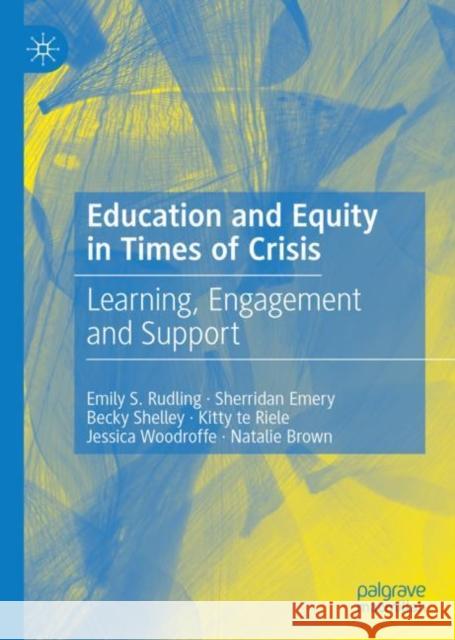Education and Equity in Times of Crisis: Learning, Engagement and Support » książka
Education and Equity in Times of Crisis: Learning, Engagement and Support
ISBN-13: 9783031186707 / Angielski / Twarda / 2023 / 178 str.
Education and Equity in Times of Crisis: Learning, Engagement and Support
ISBN-13: 9783031186707 / Angielski / Twarda / 2023 / 178 str.
(netto: 191,66 VAT: 5%)
Najniższa cena z 30 dni: 173,46
ok. 16-18 dni roboczych.
Darmowa dostawa!
This book examines how educational equity is affected during crises – specifically the COVID-19 pandemic. Three key concerns emerge for children’s and young people’s education: material needs, emotional wellbeing, and access to learning. The evidence highlights how pre-existing educational inequalities were exacerbated as well as altered during the global pandemic. Critical reviews of educational vulnerability and of significant crises over the past century provide the book’s foundation. Then, drawing on empirical research from Australia and extensive analysis of international documentation, the book demonstrates significant detriments that pandemic responses caused to formal learning and the broader support role of schools and also addresses promising educational innovations. The book is important not only for scholars in education, but also for practitioners and governments to inform how to better support learning as well as material and emotional wellbeing during and after crises, especially for children and young people experiencing disadvantage.
This book examines how educational equity is affected during crises – specifically the COVID-19 pandemic. Three key concerns emerge for children’s and young people’s education: material needs, emotional wellbeing, and access to learning. The evidence highlights how pre-existing educational inequalities were exacerbated as well as altered during the global pandemic. Critical reviews of educational vulnerability and of significant crises over the past century provide the book’s foundation. Then, drawing on empirical research from Australia and extensive analysis of international documentation, the book demonstrates significant detriments that pandemic responses caused to formal learning and the broader support role of schools and also addresses promising educational innovations. The book is important not only for scholars in education, but also for practitioners and governments to inform how to better support learning as well as material and emotional wellbeing during and after crises, especially for children and young people experiencing disadvantage.











